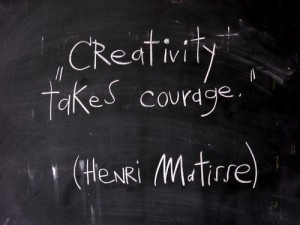Community life competence
Connecting local responses around the world
Connect with us
Website: the-constellation.org
Newsletter English, French Spanish
Facebook https://www.facebook.com/pages/The-Constellation/457271687691239
Twitter @TheConstellati1
Instagram: https://www.instagram.com/constellationclcp/
A "what if...?" moment
A very important question was posed in response to how-matters.org's recent guest post, "Participation: Reality or the Promised Land? A View from South Sudan, which is "What can development professionals who believe in and practice participatory processes do to promote it?"
It’s a tough question to answer, especially for people on the “inside” of the system, because this often means challenging the very power structures that issue their paychecks. There are too many instances in the field and at headquarters to recount here when I thought, “this is messed up.” But did I raise my voice, suggest a different way, stick my neck out for participation?
Like many development practitioners, I can honestly say sometimes, yes and sometimes, no. We choose our battles, sometimes clumsily.
Then I remembered something that I read long back from the Community Development Resource Centre in Cape Town that has always stuck with me and inspired me, in terms of orienting myself towards positive change within the development industry:
“Can you begin to imagine yourself in an organisation that ran on the principles of creativity?
“Imagine using them to shape the organisation you are currently part of. Can you imagine an organisation welcoming discord because of the harmony it brings? Can you imagine an organisation that encourages still, quiet spaces and invites you to stand back from the endless doing? Can you imagine an organisation to which you would risk bringing your whole self? An organisation in which you could be fully present? Can you imagine an organisation that expects you to work with heartfelt intention and the ability to let go? Can you imagine all of this held together in a more rhythmic, less rigid form? If you can, if you are in any way inspired, we would like to say “hamba kakuhle” [go well] as you continue on this journey.”
When discouraged over the years by inhibiting hierarchical structures or an unhealthy obsession with results or a blatant disregard or disinterest in local priorities, I often turned to this passage from CDRA to help me orient myself again towards possibility.
In thinking about local organizations and their role in development, the other day I wrote down this set of possibilities,
“What if in the hearts and minds of aid workers, donors and philanthropists, local organizations could become respected, envied, even revered? What if, when a problem presented itself, people’s next thought was, “Let’s see what the local groups have to say?” What if when money were on the table, people thought, “How can we get some of this directly into the hands of grassroots organizations already working on the ground? What if we re-oriented capacity building approaches for local groups to be rooted in what they most require from us – allies, nurturance, respect, celebration, collaboration, and engagement?”
I’m not sure how to get there. But what I do know is that as development practitioners who care about ownership, we all need to create more “what if” moments for ourselves.
And that is sometimes the most important battle we fight.
***
This post originally appeared at: http://www.how-matters.org/2011/08/16/a-what-if-moment/
***
Related Posts
Comment
-
Comment by Jennifer Lentfer on August 26, 2011 at 4:26am
-
Yes and yes Ashanta. We are but "facilitators" is a perspective that needs to be shared and shared again.
-
Comment by Ashanta Osborne-Moses on August 26, 2011 at 2:47am
-
Thank you for this post Jennifer! Indeed some provocative and completely pertinent questions raised. Lately I have certainly had a few 'heavy' thoughts on the true nature of the development we all work towards, and in every case the conclusion is always the same; we are but "facilitators"....the solutions lies within the community. There really is no other way to have real impact...is there?
© 2026 Created by Rituu B. Nanda.
Powered by
![]()

You need to be a member of Community life competence to add comments!
Join Community life competence